Latgale, Latvia is a part of the Baltic region that many travelers miss. Well off the beaten path that links Riga with Vilnius and Tallinn, Latvia’s southeastern corner is a mysterious land of lakes, castle ruins, and onion domes. Lithuania, Belarus, and Russia share borders with Latgale, which was first settled by the Latgalians in the 10th century and incorporated into the Livonian Order two hundred years later. This lively mix of cultures is evident in everything from the architecture and religion to the diversity of the population and the languages it speaks. With three days and my own set of wheels, I set off to try to gain a better understanding of this undiscovered region of Europe.
Daugavpils is the largest city in Latgale and a great starting point for a road trip. The up-and-coming city has several worthwhile museums including the Mark Rothko Art Centre, an interactive exhibition space dedicated to the locally-born painter. Daugavpils also boasts the largest Orthodox cathedral in Latvia, which is perched on a hill next to three more churches of various denominations. You can find my in-depth recommendations for a weekend visit to Daugavpils here.
Driving northeast from Daugavpils on highway A13, you will want to make a slight detour to the Basilica of the Assumption in Aglona. Founded by Dominican monks in the 18th century, Aglona Basilica is Latvia’s most important Catholic church. Its historic icon, “Our Miraculous Lady of Aglona,” is believed to have healing powers and attracts thousands of pilgrims when it is unveiled every year on August 15. A spring near the lake behind the church is also thought to have special healing properties – so bring a bottle to fill up!
Continuing northeast along the A13 you’ll come to Rezekne, Latgale’s second largest city. While there is much to explore, I only had time for one attraction this road trip: the Rezekne castle mound and Livonian castle ruins. In the 9th century, ancient Latgalians built a wooden castle on a hill next to a strategic river. The castle stood until the 13th century when the Knights of the Livonian Order came a-knockin’. The knights built their own two-story stone castle on the site which survived until the Swedish War of 1656. Unfortunately not much remains as locals were allowed to cart off the stones for use in building their homes, though the single archway that exists today is very photogenic.
The reason I gave Rezekne somewhat short shrift on this trip was because I was keen to see Ludza, the oldest town in Latvia. Ludza was first mentioned by Russian chroniclers in 1173, nearly three decades before Riga was founded. Later, in 1399, the Livonian Order built a large castle in Ludza to protect its eastern trade routes. Located a mere 30km from the Russian border, Ludza was particularly vulnerable to attack. Although the castle was left in ruins by a series of medieval wars, an impressive wall remains overlooking the town and surrounding lakes.
The Ludza castle ruins sit next to the lovely Church of the Virgin Mary, a beacon of the town’s predominant Roman Catholic religion. A small blue-and-white Orthodox church has pride of place in the town’s main town square, which is also where you’ll find its best (only?) cafe: Kristine’s. Take some time to wander the quiet streets and admire Ludza’s quaint wooden homes.
Over the course of its long history, Ludza has been incorporated (often forcibly) into Livonia, the Polish-Lithuanian Commonwealth, the Russian Empire, Nazi Germany, and the Soviet Union. And yet, miraculously, the original Latgalian language clings on. You can find it on street signs and in bookshops, and hear it spoken on local television. Latgalian has been protected by law since Latvia regained independence in the 1990s.
The Ludza Local History Museum is a small, open-air collection of historic buildings located on the outskirts of town. Structures of note include a Stone Age Dwelling, a Latgalian graveyard, and wooden windmill, though I had to content myself by peeking through the closed fence since I visited on a Sunday (the Catholic day of rest).
No road trip to Latgale would be complete without a stop at Liepkalni Bakery, conveniently located on the A6 highway back to Riga. “Liepkalni” was the name of a farmstead owned by the Medzinu family in the 1920s, and the breads produced from their wheat and rye harvests were legendary. Jump ahead over a tumultuous half century and the grandson of the farm’s original owner has reclaimed the land and opened a bakery to carry on the family tradition. It’s a Latvian success story that warms my heart, and the aromatic breads (and piragi and apple cakes and chocolate eclairs) warm my belly.
Are you ready to add Latgale, Latvia to your Baltic itinerary?
PIN IT!
Locals, tell me which places in Latgale I should visit next!
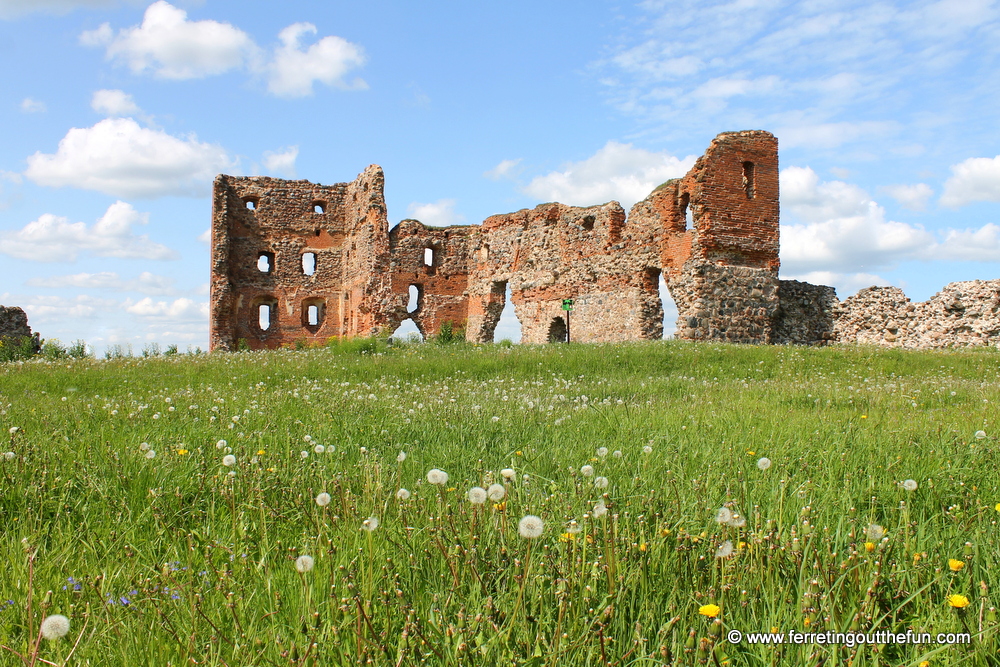
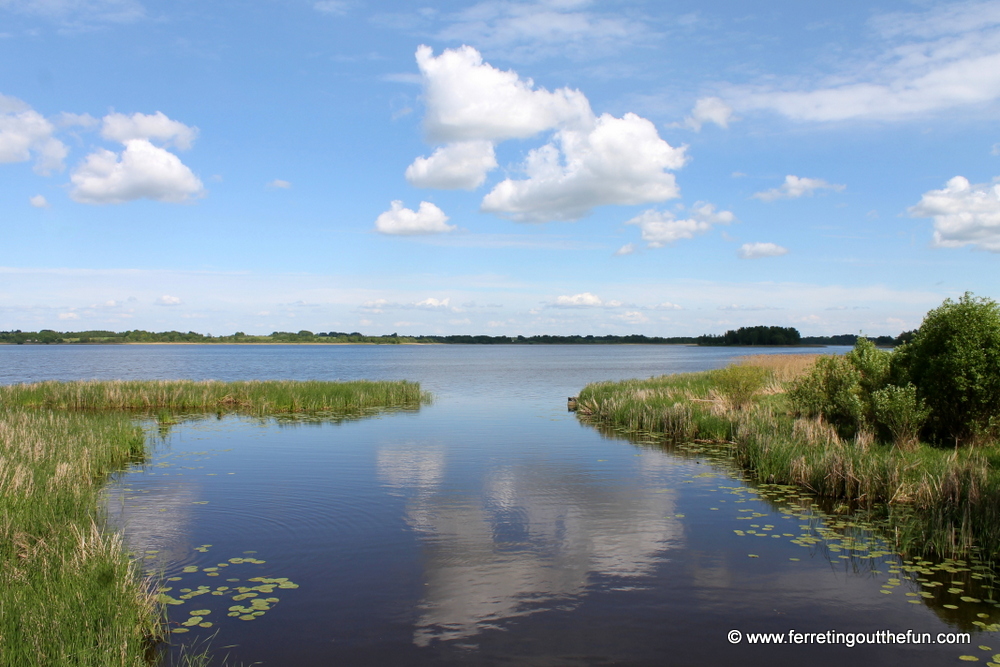
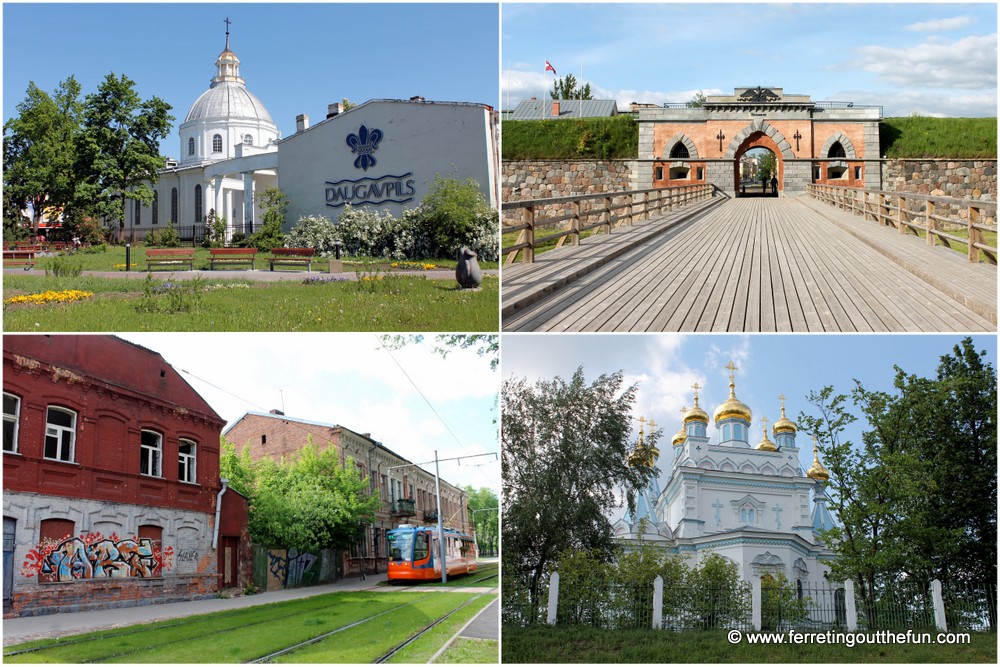
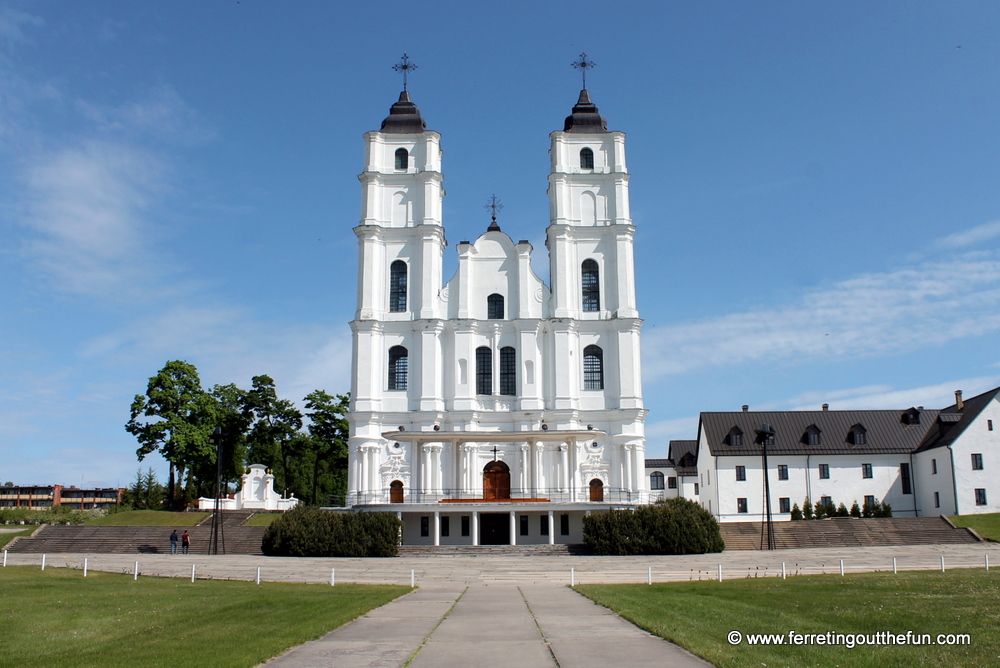
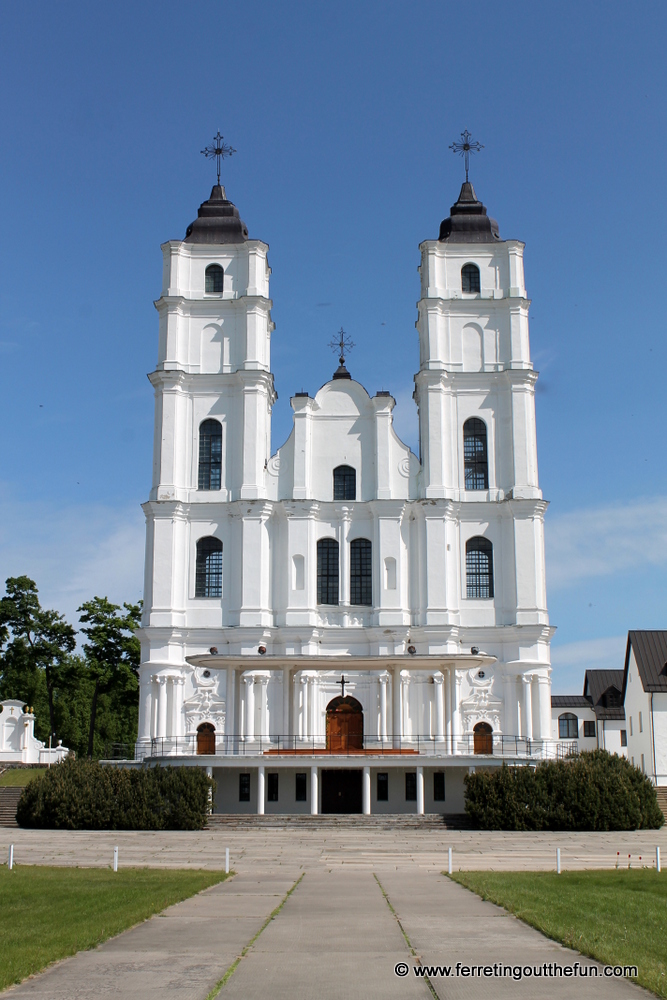
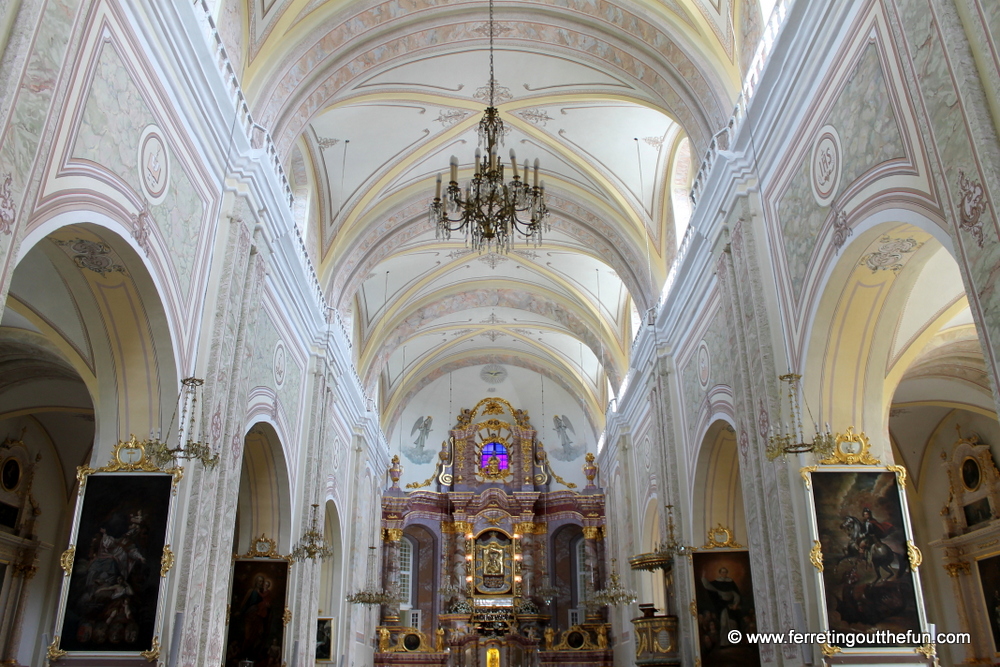
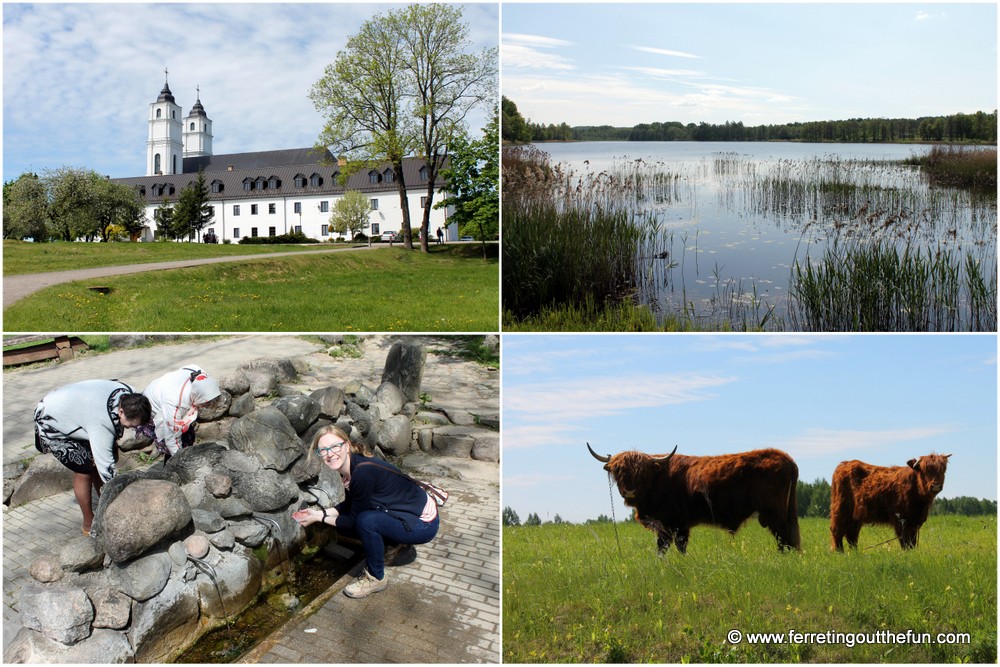
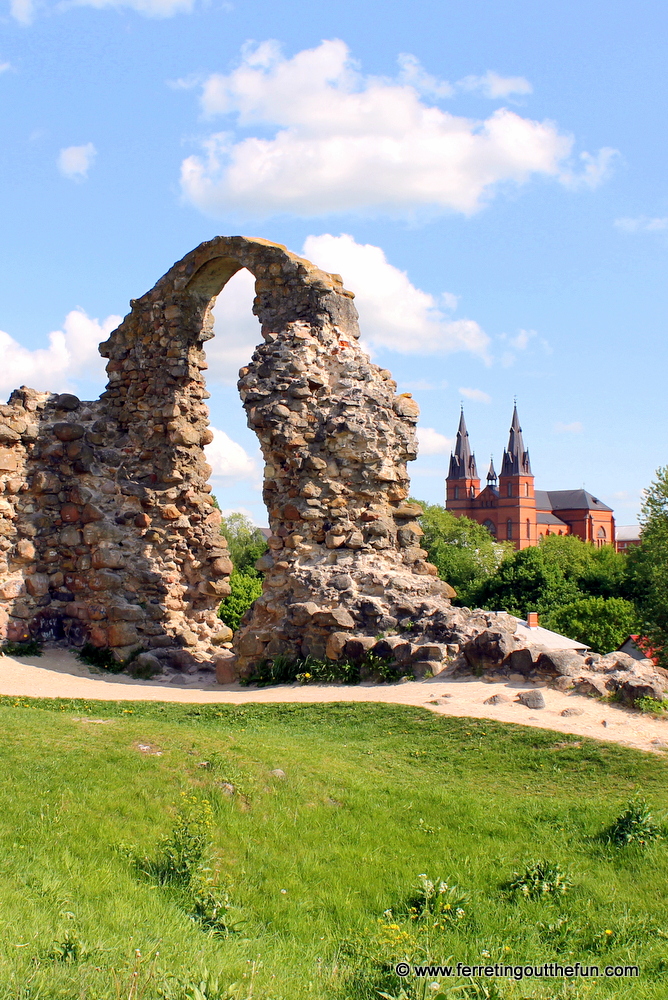
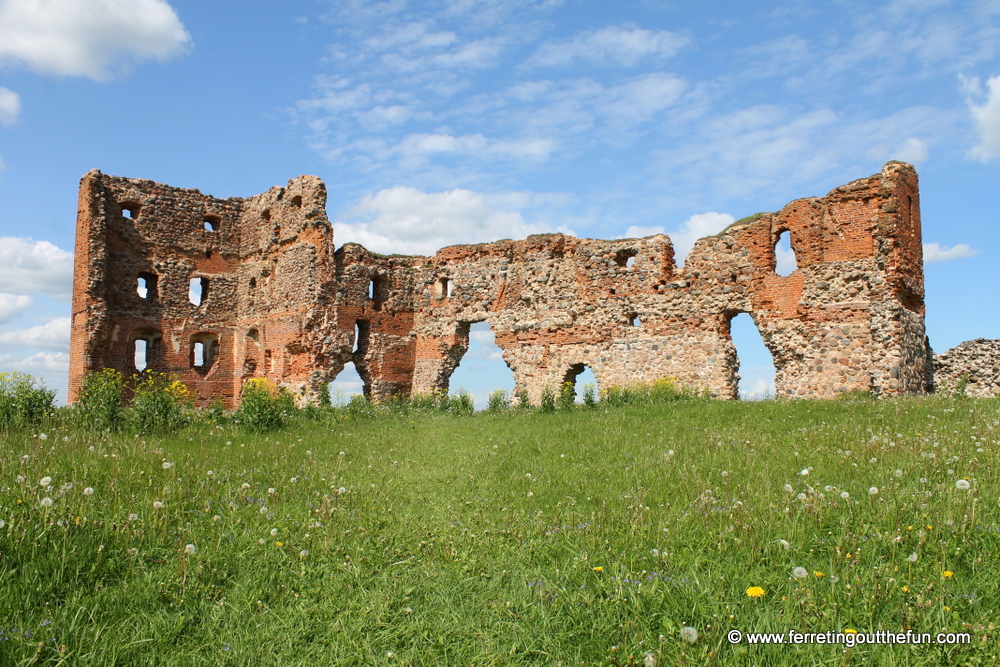
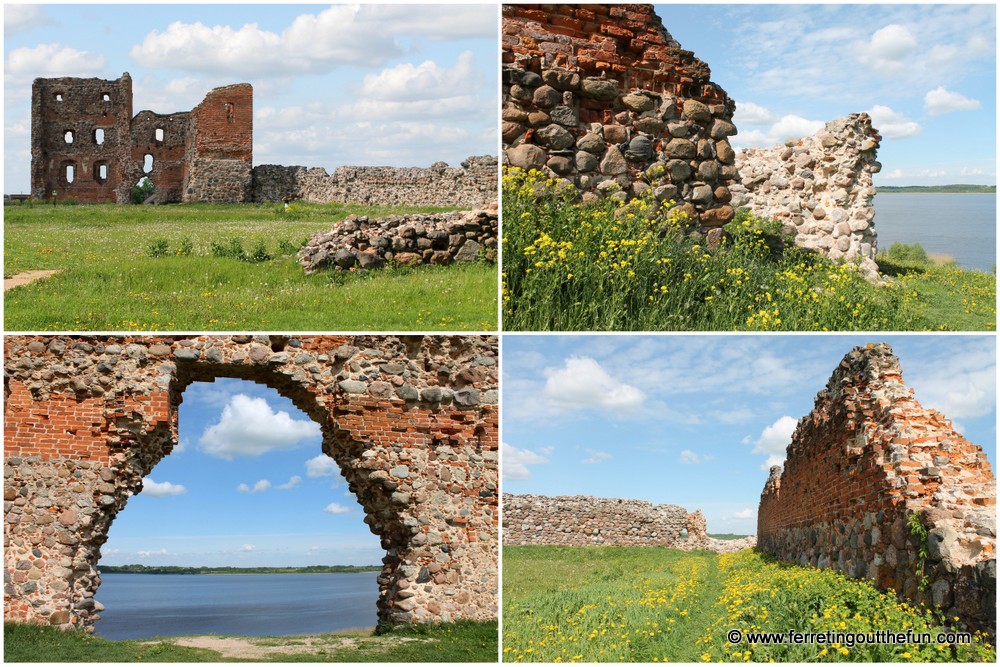
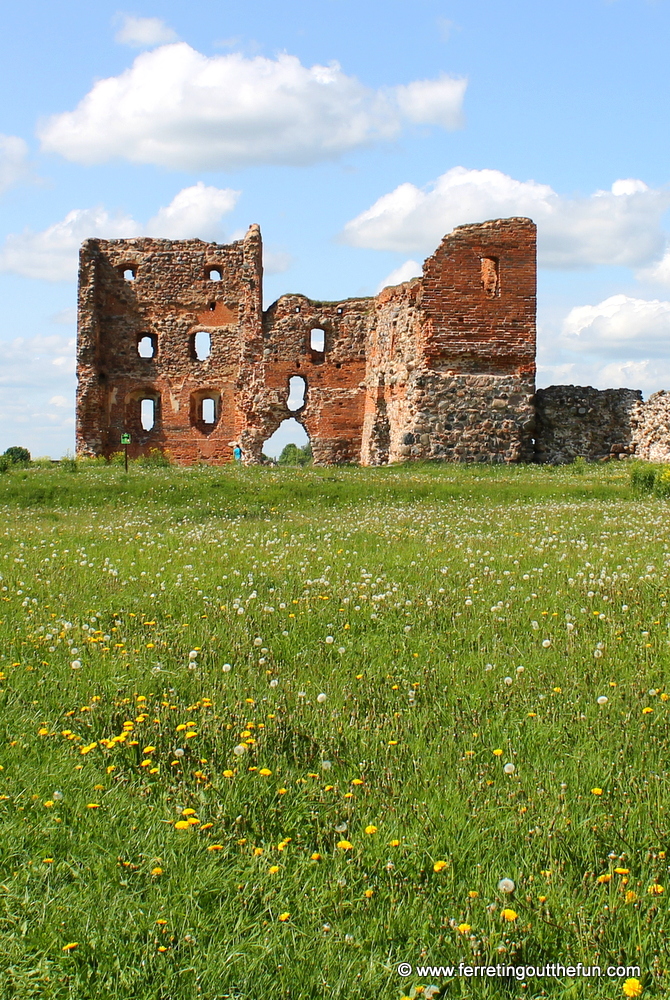
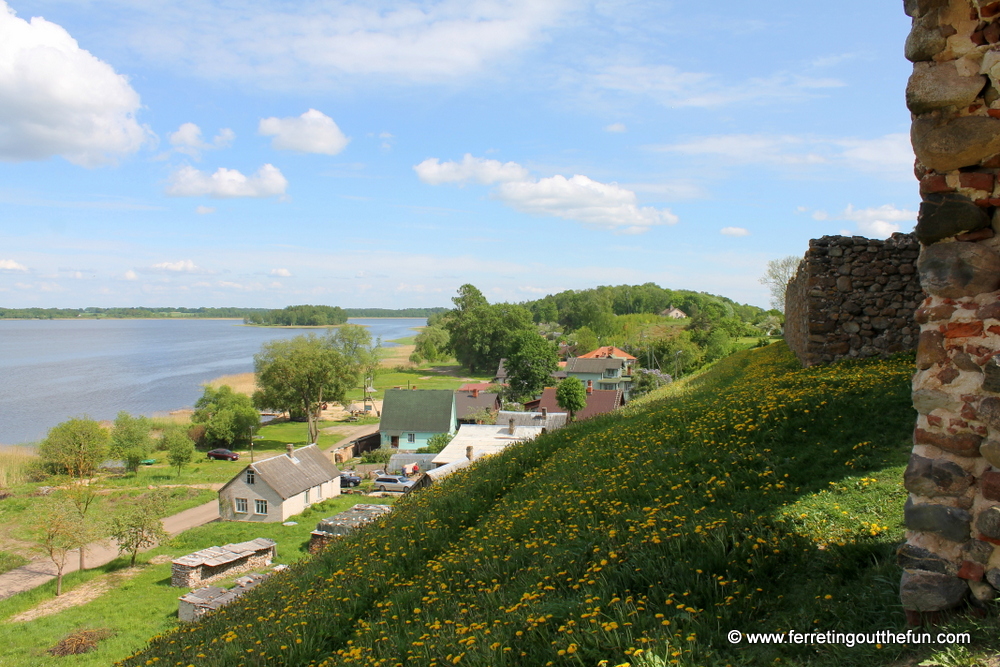
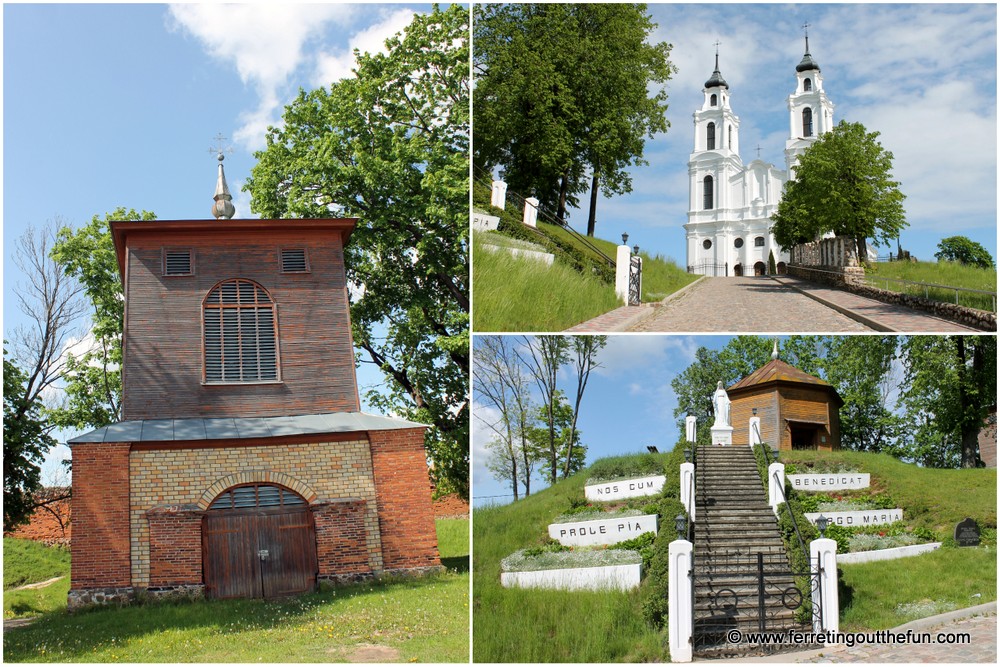
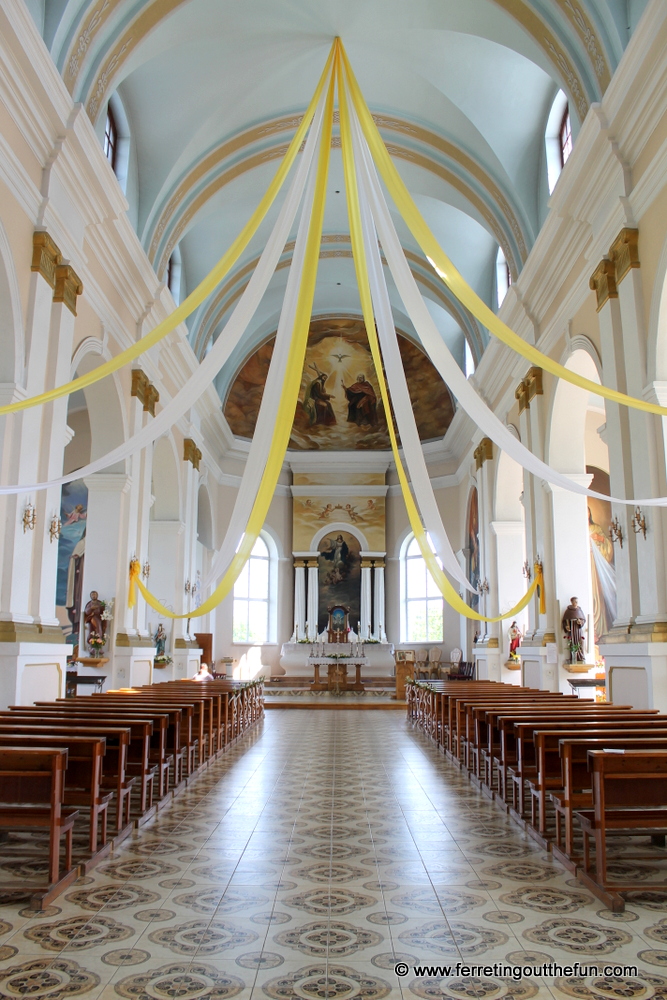
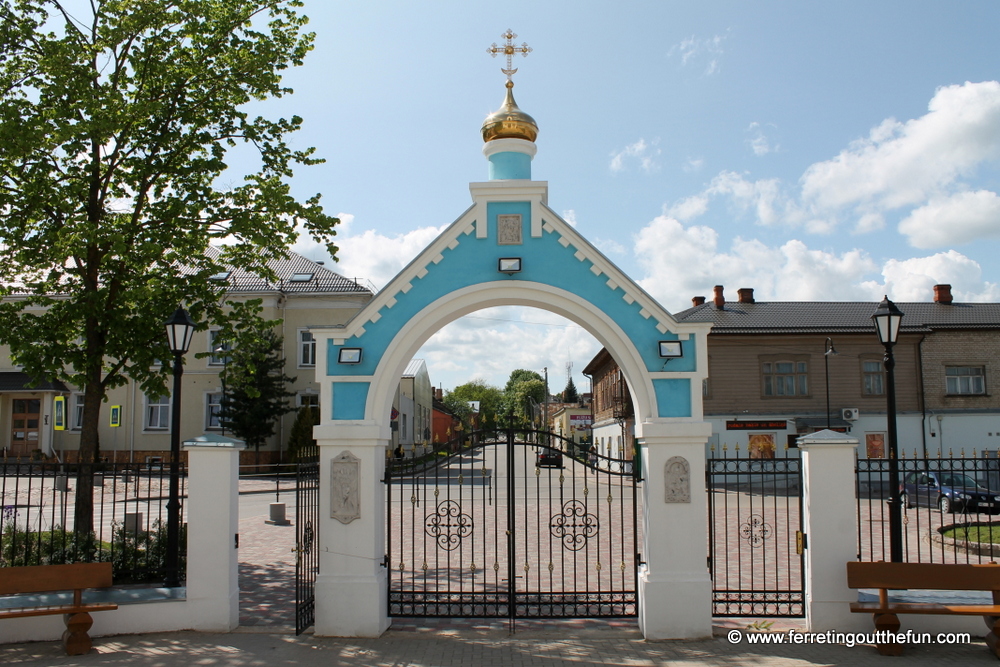
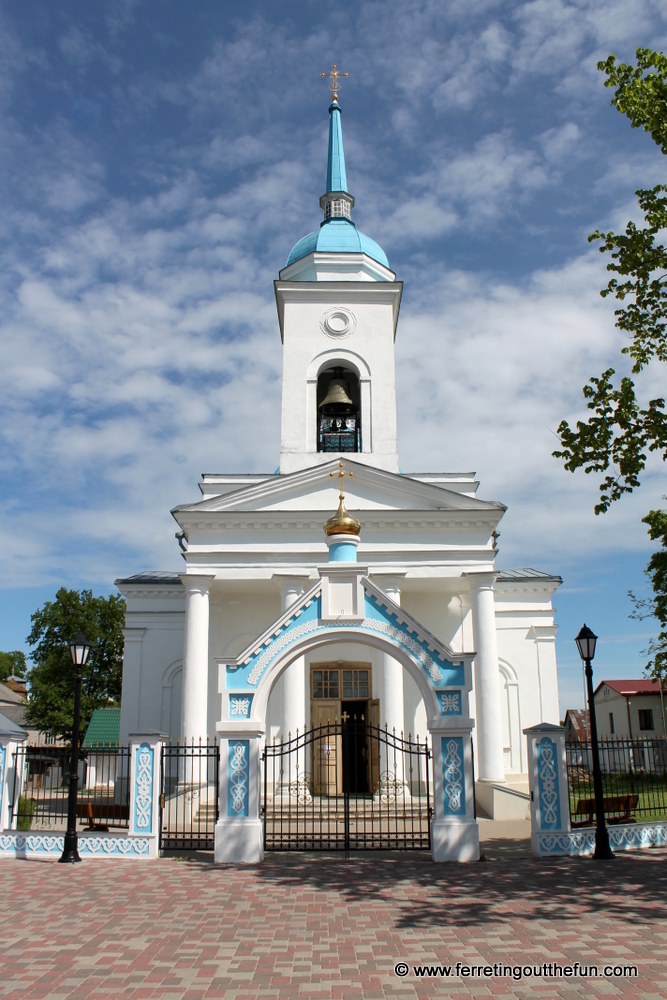
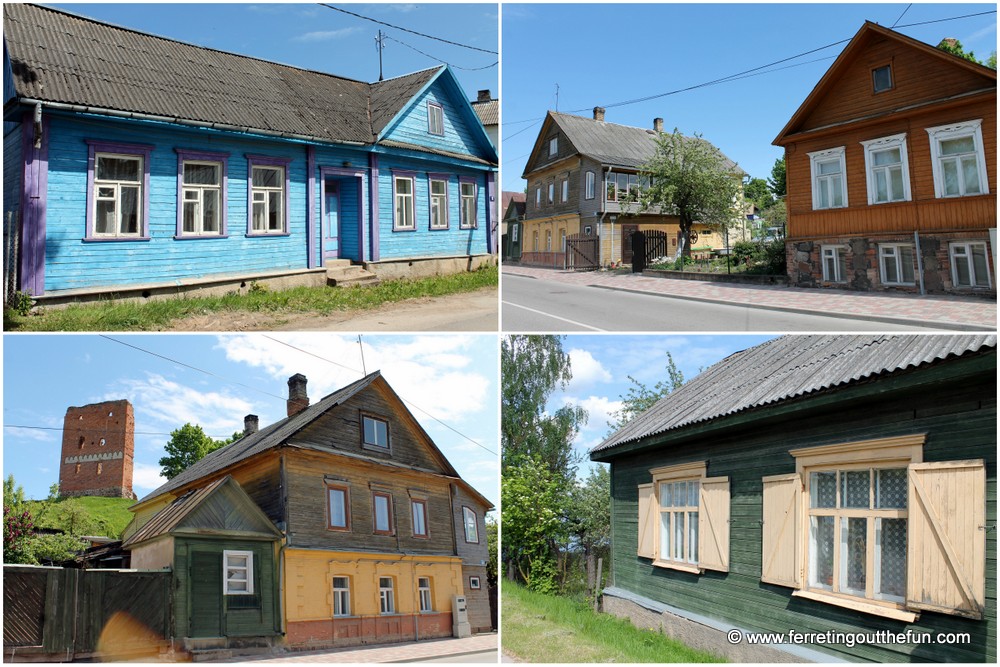
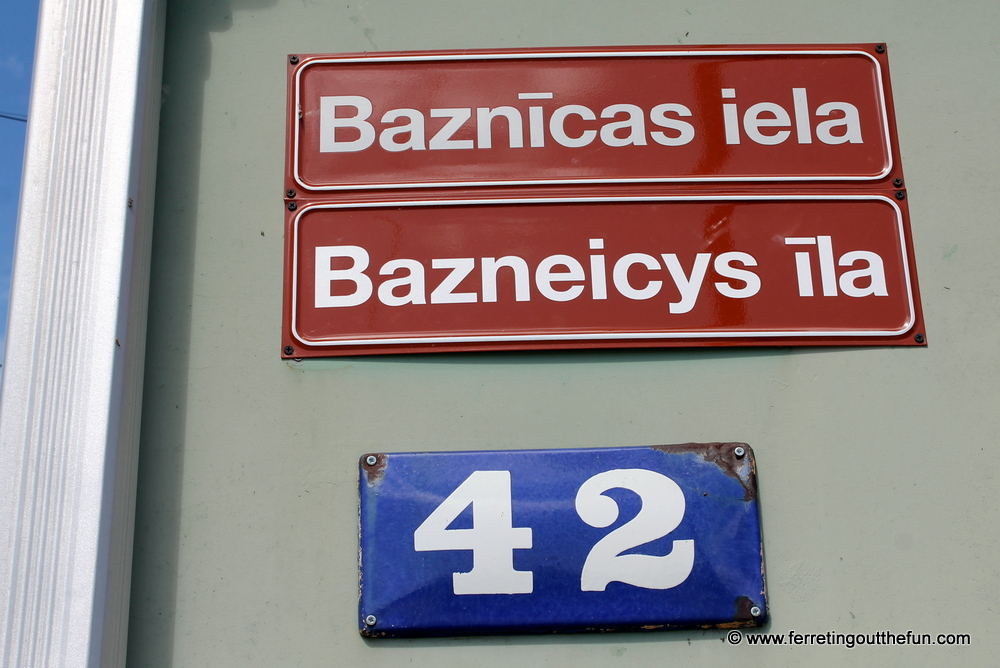
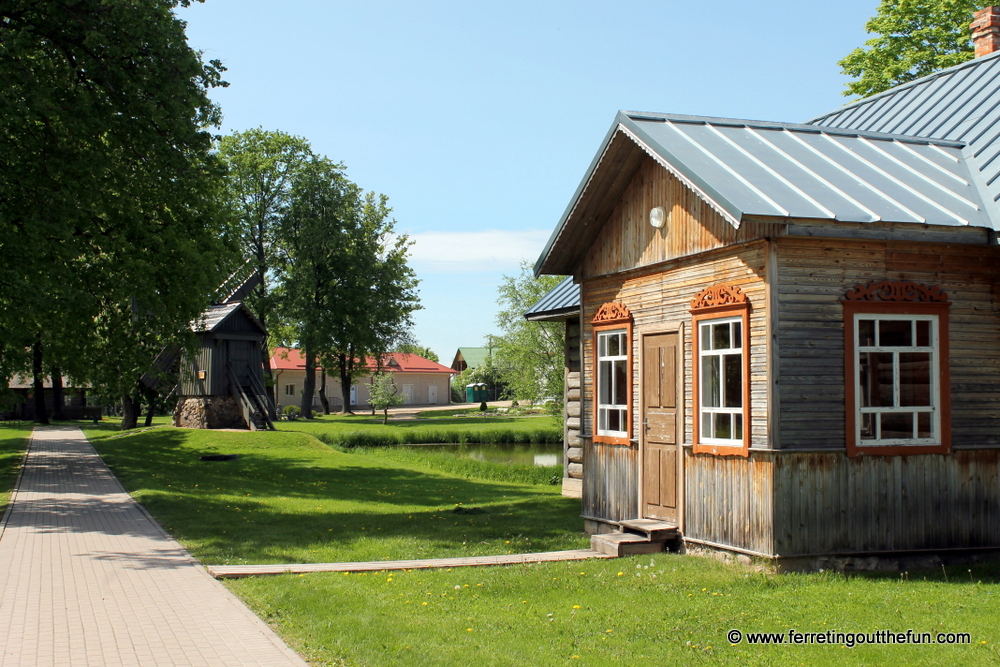
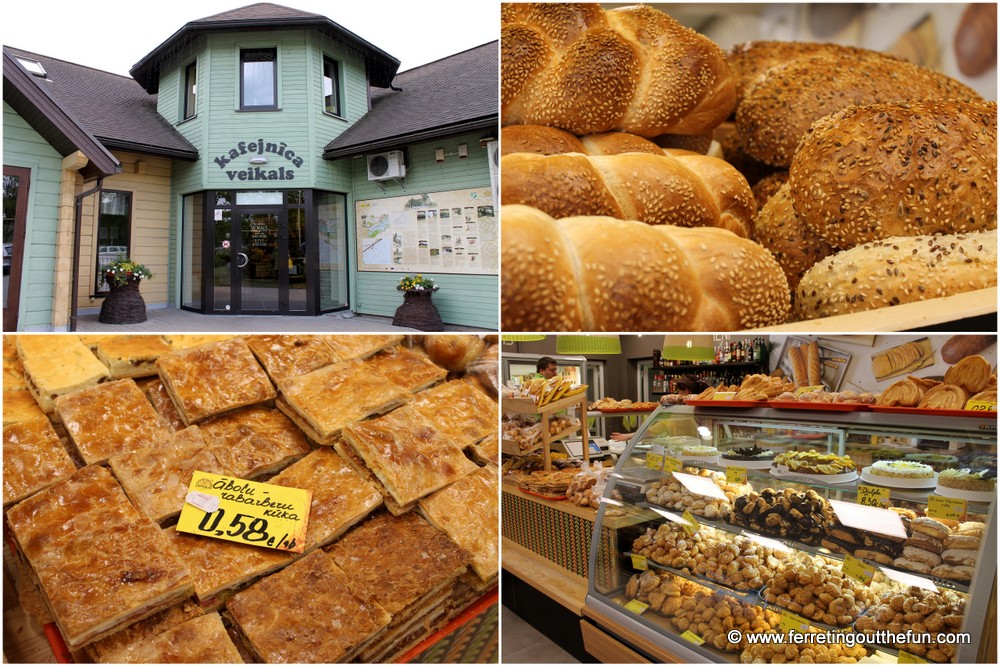
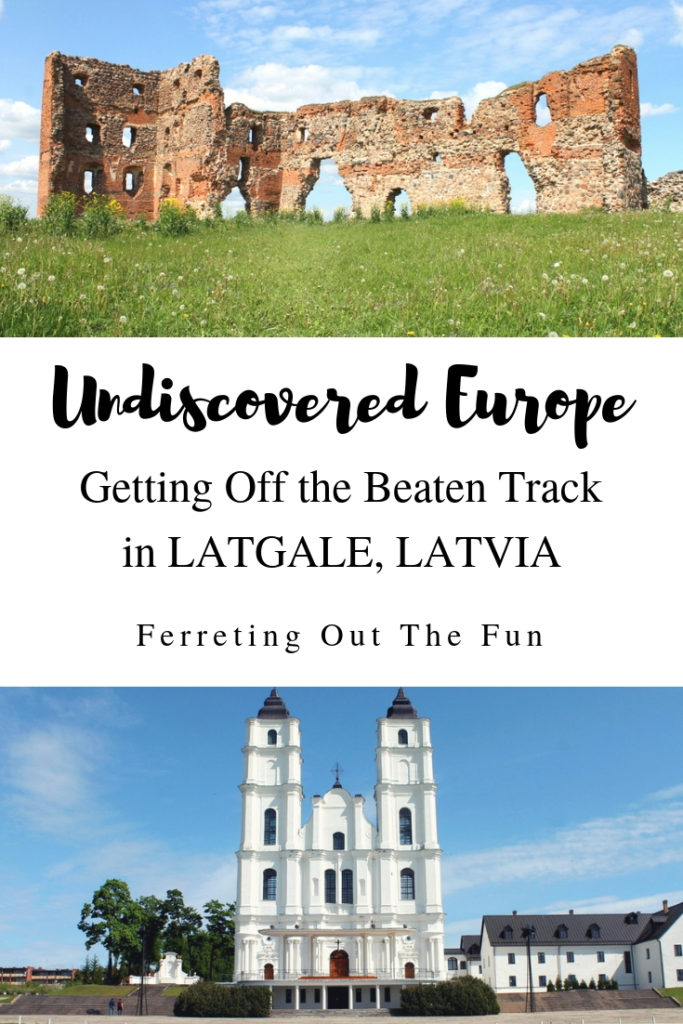
I love trips like this. Able to go at your own pace. You certainly saw some beautiful sites in a short period of time. Wish I had been with you.
Road trips are great, aren’t they? We need to take some more!
Latgale is not too famous but after seeing your photos and story, i think its worth to be visited..thank you for sharing
Thanks, Steven! Latgale is a region that’s definitely worth exploring and I can’t wait to go back and see even more!
Glad you had a chance to visit Latgale! Aglona is just lovely, isn’t it?
So lovely! Though I can’t believe I showed up without a bottle to fill with water. Locals had office water cooler size jugs 🙂
This sounds like a fantastic road trip, Heather, and I particularly love the story of the bakery and how it’s continuing on in the family tradition…small mom and pop places like that are my absolute favorite to see when traveling (or when home, for that matter;-) Happy autumn across the pond!
I’m living in Taipei now and miss my Latvia road trips so much! But Taiwan certainly has its own charm – and more mom and pop establishments than I can count! 🙂
I wasn’t aware of Ludza, I’ve looked at each of the other spots but Ludza looks like a real gem! Very happy to have refind your blog today!
I’m so happy to hear that someone else is interested in Ludza! I thought it was a delightful little town 🙂